capital punishment

The Ugandan Parliament has re-introduced a draconian anti-LGBT bill that has received widespread international criticism. Under this bill, first introduced in 2011 and re-introduced earlier this year, the government would prescribe the death penalty to all LGBT people and those that provide them with housing and resources.
The bill is expected to pass before the end of this year; its champions call it a “Christmas gift to the Ugandan people.”
In the face of this hatred, I am glad to work for Sojourners, which earlier this year signed on to the following statement along with other Christian groups:
Our Christian faith recognizes that all human beings have been created in the image and likeness of God, and Christ teaches that we are to love our neighbors as ourselves. All acts of bigotry and hatred betray these foundational truths … Regardless of the diverse theological views of our religious traditions regarding the morality of homosexuality, the criminalization of homosexuality, along with the violence and discrimination against LGBT people that inevitably follows, is incompatible with the teachings of our faith.
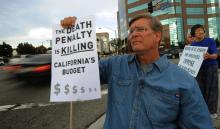
October was Interfaith Month for Prop 34, a time set aside for leaders of faith traditions to address the question of California’s death penalty and advocate for its replacement. Hundreds of faith community’s have endorsed Proposition 34 because we believe the best way to do justice in California is to replace the death penalty with life in prison with no possibility of parole.
The will to see justice done is deep within the human spirit. We may not always agree on what “justice” looks like, but the belief in a just and fair society — and the desire to bring it about — are at the heart of how we live together and form a community. In religious traditions like Christianity, Islam, Judaism, and countless others, doing justice is a calling to enact God’s will.
The next question is, of course, what does that mean? Discerning justice can be even harder than doing justice.

SPOKANE, Wash. -- They stood in front of a shopping mall, shackled together, heads down, nameplates dangling around their necks, bearing the names of men and women who have died on America’s death row.
Cal Brown.
Teresa Lewis.
Cameron Todd Willingham.
Behind them, stood Victoria Ann Thorpe, dark makeup painted on her cheeks and a sign painted to look like blood stains waving above her head: “Their blood is on our hands.”
Somehow, despite Thorpe’s gory exterior, she’s approachable.
“Would you like information on the death penalty?” she asks shoppers as they exit the mall, unable to avert their eyes from the scene in front of them. She hands them a clipboard and one by one, they fill out postcards showing their support to abolish the death penalty in Washington. The cards will later be sent to state lawmakers. The group has also protested at Gonzaga University and so far has collected more than 200 signatures.
Thorpe, along with the Safe and Just Alternatives organization and The Inland Northwest Death Penalty Abolition Group, is seeking to pass a state law to replace the death penalty in Washington state with life without parole.

In 2009, after moving to Southern California, a neighbor, Tom Rotert, who is an attorney, asked about my reporting on wrongful convictions and wrongful executions while I was at the Chicago Tribune.
I explained that along with my fellow reporter Steve Mills, we had documented numerous wrongful convictions in Illinois and the executions of two innocent men in Texas — Carlos DeLuna and Cameron Todd Willingham.
“You know who the ultimate wrongful execution is, don’t you?” Rotert asked. “It was Jesus Christ. They killed the son of God.”
The crucifixion of Jesus Christ doesn’t come up very often in discussions about wrongful convictions in America, but as California voters prepare to go to the polls to vote on Proposition 34 which would ban the death penalty in this state, two lawyers — one from Chicago and one from Minneapolis — are doing exactly that.

Nearly a quarter of a century after DNA testing was used to prove that a defendant had been falsely convicted of a crime, the American public has become familiar with the phenomenon and how the script plays out in our courtrooms.
The exonerated defendant stands before a judge and is informed that the conviction is vacated and the charges are dismissed. And then the former inmate —more than 100 have come from Death Row — is joined by family members and lawyers in a celebration on the courthouse steps.
Yes, it is a joyous occasion to step from behind prison bars after years — as many as 30 years in one case —of being locked up for a crime that was not committed.
But, as a report issued Monday by the National Registry of Exonerations makes clear, behind every one of these jubilant moments are tragedies, some of them of enormous proportion.
The report documents nearly 900 individual cases of exoneration. Combined, these (mostly) men and women served more than 10,000 years in prison for crimes they did not commit. In fact, in more than 100 cases, there was no crime at all — accidents were mischaracterized as murders and crimes were just concocted based on a web of lies and falsehoods.
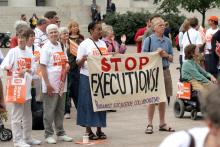
The campaign to abolish the death penalty has been freshly invigorated this month in a series of actions that supporters say represents increasing evidence that America may be losing its taste for capital punishment.
As early as this week, Gov. Dannel Malloy, a Democrat, is poised to sign a bill repealing the death penalty in Connecticut. A separate proposal has qualified for the November ballot in California that would shut down the largest death row in the country and convert inmates' sentences to life without parole.
Academics, too, have recently taken indirect aim: The National Research Council concluded last week that there have been no reliable studies to show that capital punishment is a deterrent to homicide.

North Carolina's Racial Justice Act was just a piece of legislation until this morning, when Judge Gregory Weeks set aside a death penalty sentence that had been meted out to Marcus Robinson in 1994.
At issue this morning was not whether Robinson was guilty of first-degree murder. At issue was whether “racial bias” had prevented the “fair and reliable imposition of the death penalty in North Carolina.”
Judge Weeks found that racism was indeed at work in Robinson’s sentencing. There is, Weeks said, “considerable evidence of the continuing effects of racial prejudice in the application of the death penalty.” Specifically, Weeks found that racism guided the selection of Robinson’s jury, thus compromising Robinson’s right to trial by impartial jury. In accordance with the Racial Justice Act, Robinson will now serve a term of life imprisonment without parole.
In the more than three decades since the national moratorium on the death penalty was lifted, there is no reliable research to determine whether capital punishment has served as a deterrent, according to a review by the National Research Council.
The review, partially funded by the Justice Department's National Institute of Justice, found that one of the major shortcomings in all previous studies has included "incomplete or implausible" measures of how potential murderers perceive the risk of execution as a possible consequence of their actions.
Another flaw, according to the review, is that previous research never considered the impact of lesser punishments, such as life in prison without the possibility of parole.

Democrats See Opening To Attract Religious Voters In 2012 Election; Does Inequality Matter?; From Occupy To Progressive Renewal: Demanding The Just Society; Occupy Movement A Reminder Of What We Value; The Annual 'War On Christmas' Shows How A Faith That Once United America Now Divides It; Religious Leaders Target Repeal Of N.C. Death Penalty Law; Gulnare Free Will Baptist Church: Kentucky Congregation Overturns Ban On Interracial Couples.
No one could stop Troy Davis' execution -- despite his apparent innocence.
Yesterday Oregon Gov. John Kitzhaber announced a moratorium on all executions in the state, declaring capital punishment to be a “perversion of justice.”
Oregon has carried out two executions in the last 47 years, both during Kitzhaber's tenure as governor.
With convicted murderer Gary Haugen facing the death penalty on Dec. 6 — coupled with the governor's growing frustration with the death penalty — Kitzhaber had had enough and halted Haugen's execution as well as any in the foreseeable future.
"I refuse to be a part of this compromised and inequitable system any longer and I will not allow further executions while I am governor," Kitzhaber said in The Oregonian.
Sparing Haugen’s life is not only a powerful victory for his family and loved ones, but also for anti-death penalty activists such as Naseem Rakha, who has devoted much of her career to writing about capital punishment as a journalist and novelist.
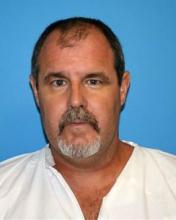
Tony Rackauckas, Orange County District Attorney, held a press conference to announce his intent to seek the death penalty for Scott Dekraai, who killed his ex-wife and seven others at Salon Meritage in Seal Beach on Oct. 12.
“There are some cases that are so depraved, so callous, so malignant that there is only one punishment that might have any chance of fitting the crime," said Rackauckas. “When a person, in a case like this, goes on a rampage and kills innocent people in an indiscriminate bloody massacre, I will of course seek the death penalty.”
He added, “This is the only way our society can get anything approaching justice for the victims, their families, the town of Seal Beach, and the larger community.”
If justice means putting Dekraai on a gurney and executing him, the victims, their families and everyone else hoping for that outcome should face the cold hard fact that they are in for a long wait.
The high cost of anti-immigration laws. Why candidates' faith matters. ABC News' exclusive interview with President Obama. U.S. Hispanics choosing churches outside Catholicism. Three U.S. Congressmen tour the Canadian tar sands. Who are the death penalty's most ardent supporters? Investors worth a collective $20 trillion (with a T!) call for urgent action on climate change. And God's economy.
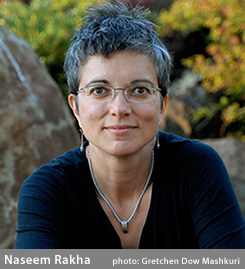
Naseem Rakha, author of the 2009 novel The Crying Tree sees justice differently. Rakha, an award-winning journalist whose work has been featured on National Public Radio and elsewhere, has covered two death penalty cases in Oregon -- the only two in that state's history -- and has spent considerable time exploring the deeper story behind capital punishment, retributive justice and forgiveness.
"What I learned from talking to these victims is that there is a place, not called closure, not called moving on, but there is a place of empowerment," Rakha said in a recent interview with God's Politics. "Crime strips people of power, and there's nothing that the justice system or really even churches can give to you to replace that power. It is an act of wanting to sit down and meet with the person who strips that power from you that has transformed people's lives and gotten them to a point where they can forgive the act, because they see the perpetrator no longer as a monster, but as a human that has made a terrible mistake."

By the time someone figured out what happened, the deadline to appeal the denial of his post-conviction appeal had passed. So far, the state of Alabama has successfully argued that despite the mail room debacle, Maples should have been aware -- through his local counsel -- that the clock was ticking and that he just blew it.
Courts have struggled for years over the question of who should bear the penalty for a lawyer's mistakes or incompetence and the Maples case represents an extreme example of the problem of imputing the mistakes of a lawyer to the client.
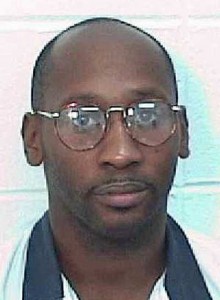 "Continuing a cycle of violence through state-sanctioned actions does not bring justice but only creates a culture of death and retribution. As a pro-life Christian, I believe the execution of Troy Davis shows a failure of moral leadership by both our country and the state of Georgia. The doubt surrounding the case of Troy Davis has served as a wake-up call to many in this country that our justice system is flawed and should not hold the power of life and death over any person. Justice should restore and heal, not destroy." -- Sojourners CEO Jim Wallis statement today, Friday Sept. 23
"Continuing a cycle of violence through state-sanctioned actions does not bring justice but only creates a culture of death and retribution. As a pro-life Christian, I believe the execution of Troy Davis shows a failure of moral leadership by both our country and the state of Georgia. The doubt surrounding the case of Troy Davis has served as a wake-up call to many in this country that our justice system is flawed and should not hold the power of life and death over any person. Justice should restore and heal, not destroy." -- Sojourners CEO Jim Wallis statement today, Friday Sept. 23
 Ah the joy of watching movies in the summer! Of course, there are a number of summer blockbusters coming out that will woo crowds to the theaters, but with the sky-high prices of theater tickets these days, nobody will fault you for wanting to stay home and kick back with a rental. If you're looking for a film that will entertain and inspire you, consider adding some of these excellent films about social change to your online queue. If you have any other films to add to this list, please contribute your favorites in the comments section below. (To read more of my film reviews, check out my monthly column in Sojourners magazine.)
Ah the joy of watching movies in the summer! Of course, there are a number of summer blockbusters coming out that will woo crowds to the theaters, but with the sky-high prices of theater tickets these days, nobody will fault you for wanting to stay home and kick back with a rental. If you're looking for a film that will entertain and inspire you, consider adding some of these excellent films about social change to your online queue. If you have any other films to add to this list, please contribute your favorites in the comments section below. (To read more of my film reviews, check out my monthly column in Sojourners magazine.)
It is Death Penalty Awareness Week, and supporters of human rights across the country have turned their attention to a uniquely complicated injustice -- the implementation of capital punishment in the United States.